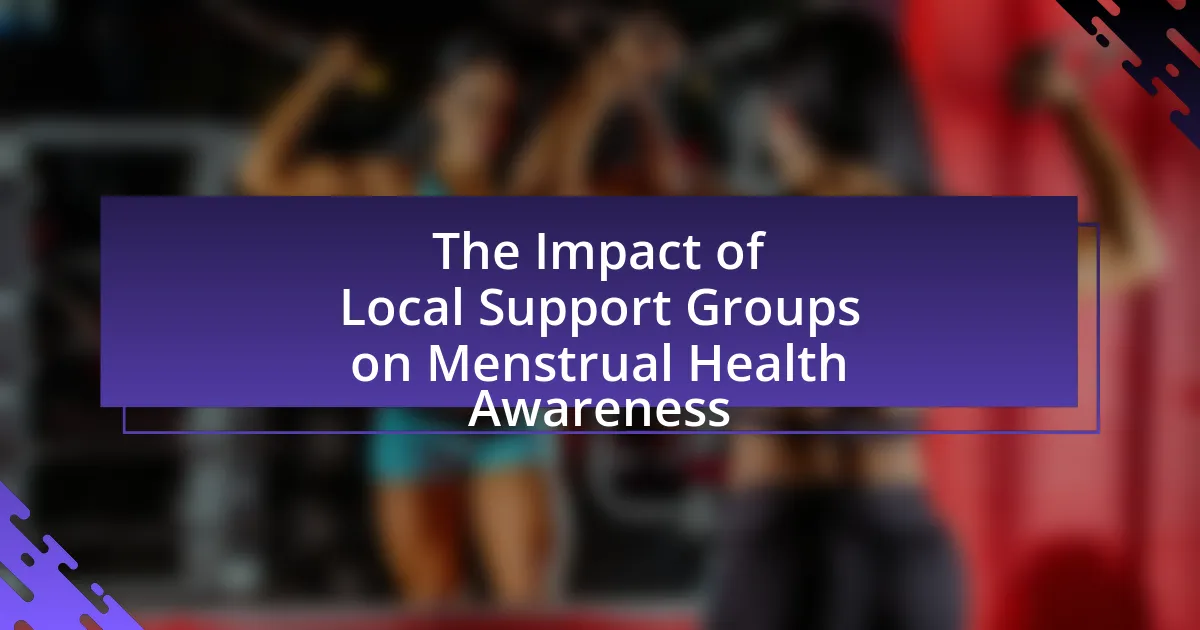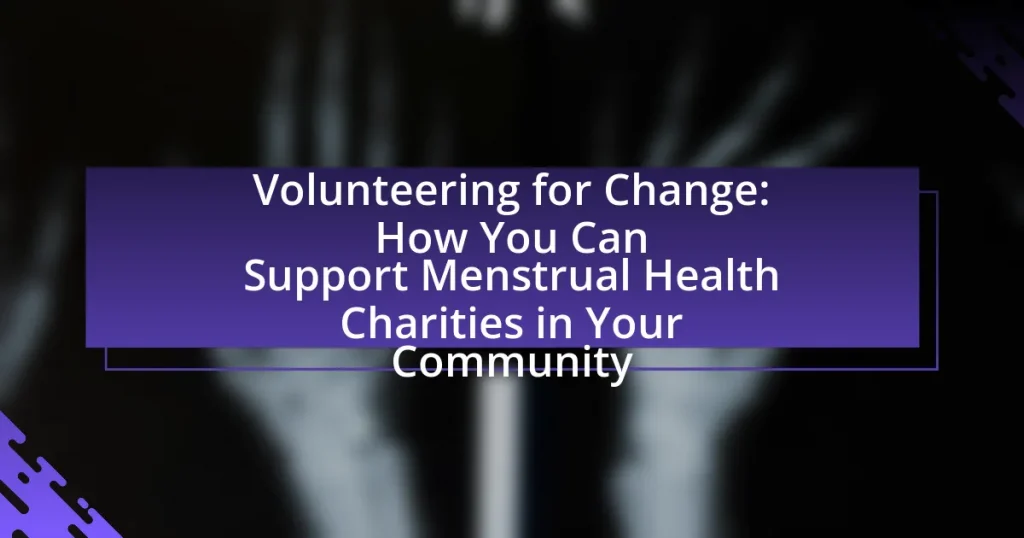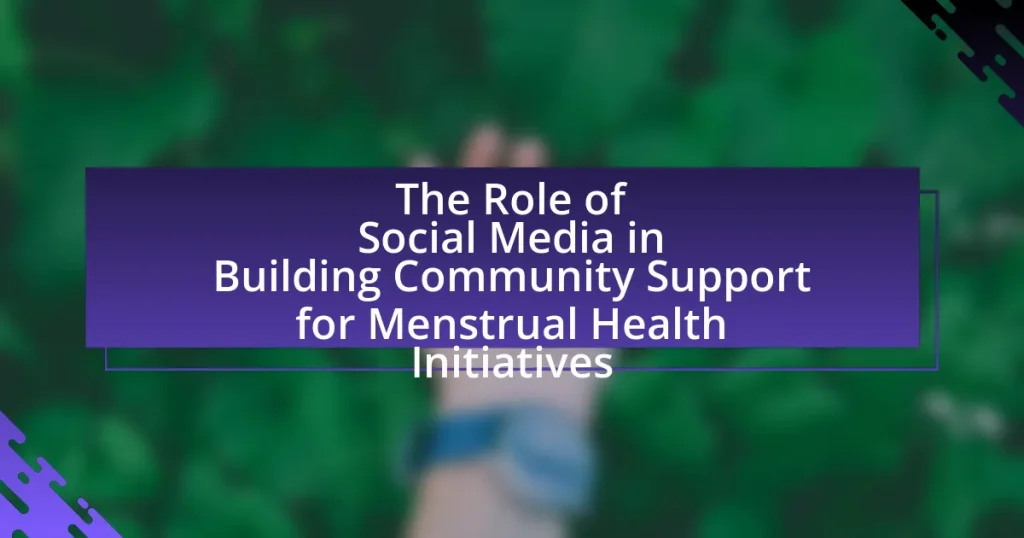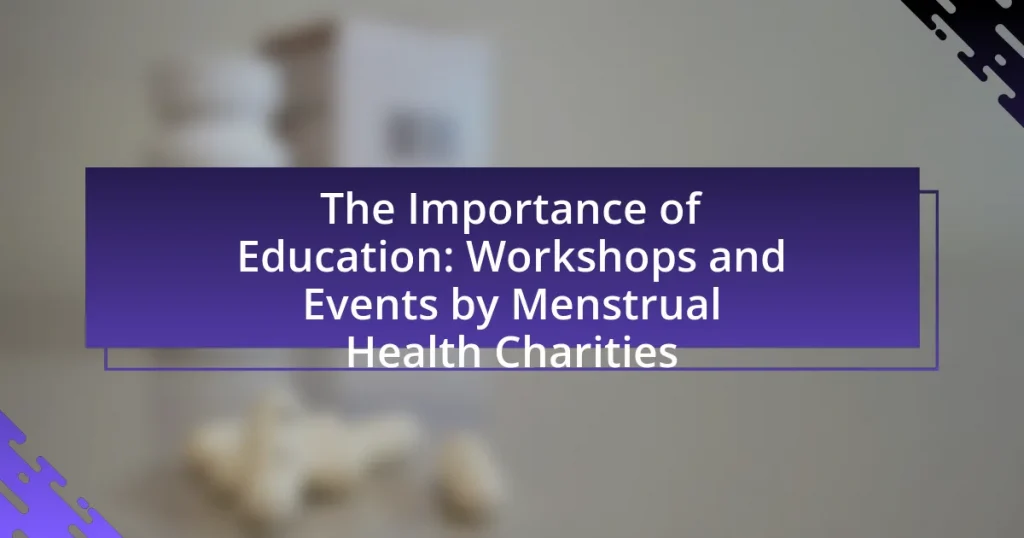Local support groups play a vital role in enhancing menstrual health awareness by providing education, resources, and a safe environment for discussion. These groups facilitate knowledge sharing, leading to increased menstrual health literacy and proactive health-seeking behaviors among participants. They cover various topics, including menstrual hygiene management, the physiological aspects of menstruation, and the social stigma surrounding it. Additionally, local support groups face challenges such as stigma and limited resources, but they can improve their impact through community engagement, partnerships with healthcare providers, and effective outreach strategies. Overall, these groups are essential for promoting understanding and reducing stigma related to menstrual health in communities.

What is the Impact of Local Support Groups on Menstrual Health Awareness?
Local support groups significantly enhance menstrual health awareness by providing education, resources, and a safe space for discussion. These groups facilitate knowledge sharing among members, leading to increased understanding of menstrual health issues, symptoms, and management strategies. Research indicates that women who participate in support groups report higher levels of menstrual health literacy and are more likely to seek medical advice when needed. For instance, a study published in the Journal of Women’s Health found that community-based support initiatives improved participants’ knowledge about menstrual hygiene and reproductive health, demonstrating the effectiveness of local support groups in promoting awareness and empowering individuals.
How do local support groups contribute to menstrual health education?
Local support groups significantly enhance menstrual health education by providing a safe space for individuals to share experiences and access reliable information. These groups facilitate discussions that demystify menstruation, reduce stigma, and promote understanding of menstrual health issues. Research indicates that peer-led education in these settings can lead to improved knowledge and attitudes towards menstruation, as evidenced by a study published in the Journal of Adolescent Health, which found that participants in support groups reported increased confidence in managing menstrual health. Additionally, local support groups often collaborate with healthcare professionals to deliver workshops and resources, further solidifying their role as vital contributors to menstrual health education.
What specific topics do these groups cover regarding menstrual health?
Local support groups cover various specific topics regarding menstrual health, including menstrual hygiene management, the physiological aspects of menstruation, and the social stigma surrounding menstruation. These groups often provide education on the menstrual cycle, addressing common myths and misconceptions, and promoting awareness of menstrual disorders such as dysmenorrhea and premenstrual syndrome. Additionally, they may discuss access to menstrual products and the importance of reproductive health education. Research indicates that such groups significantly enhance knowledge and reduce stigma, leading to improved menstrual health outcomes in communities.
How do local support groups facilitate discussions about menstrual health?
Local support groups facilitate discussions about menstrual health by providing a safe and inclusive environment for individuals to share experiences and knowledge. These groups often host regular meetings where participants can openly discuss topics related to menstruation, including symptoms, management strategies, and emotional well-being. Research indicates that peer support in these settings can significantly reduce stigma and increase awareness, as evidenced by a study published in the Journal of Women’s Health, which found that participants reported improved understanding and comfort discussing menstrual health after engaging in support group activities.
Why are local support groups important for menstrual health awareness?
Local support groups are crucial for menstrual health awareness because they provide a safe space for individuals to share experiences and access reliable information. These groups facilitate open discussions about menstrual health, helping to break the stigma surrounding menstruation and fostering a sense of community. Research indicates that peer support can significantly enhance knowledge and attitudes towards menstrual health, leading to improved health outcomes. For instance, a study published in the Journal of Adolescent Health found that participation in support groups increased awareness and understanding of menstrual hygiene management among adolescents.
What role do these groups play in reducing stigma around menstruation?
Local support groups play a crucial role in reducing stigma around menstruation by fostering open dialogue and education about menstrual health. These groups create safe spaces where individuals can share experiences, ask questions, and receive accurate information, which helps to normalize conversations about menstruation. Research indicates that community-based initiatives significantly improve knowledge and attitudes towards menstruation, leading to decreased embarrassment and shame associated with it. For instance, a study published in the Journal of Adolescent Health found that participation in support groups led to a 40% increase in positive attitudes towards menstruation among participants. This evidence underscores the effectiveness of local support groups in combating menstrual stigma.
How do local support groups empower individuals to seek help?
Local support groups empower individuals to seek help by providing a safe and understanding environment where members can share experiences and challenges related to menstrual health. This communal setting fosters a sense of belonging and reduces feelings of isolation, which is crucial for individuals who may feel embarrassed or stigmatized about their menstrual issues. Research indicates that peer support significantly enhances individuals’ willingness to discuss sensitive topics, leading to increased awareness and proactive health-seeking behaviors. For instance, a study published in the Journal of Community Health found that participants in support groups reported a 40% increase in seeking medical advice regarding menstrual health after engaging with peers. This evidence highlights the effectiveness of local support groups in encouraging individuals to take action regarding their health.
What challenges do local support groups face in promoting menstrual health awareness?
Local support groups face several challenges in promoting menstrual health awareness, including stigma, lack of funding, and limited access to educational resources. Stigma surrounding menstruation often leads to silence and misinformation, making it difficult for these groups to engage communities effectively. Additionally, many local support groups operate on tight budgets, which restricts their ability to conduct outreach programs or provide necessary materials. Furthermore, the scarcity of comprehensive educational resources hampers their efforts to disseminate accurate information about menstrual health, resulting in gaps in awareness and understanding within the community.
How do cultural perceptions impact the effectiveness of these groups?
Cultural perceptions significantly impact the effectiveness of local support groups on menstrual health awareness by shaping attitudes towards menstruation and influencing participation levels. For instance, in cultures where menstruation is stigmatized, women may feel embarrassed to attend support groups, leading to lower engagement and reduced dissemination of vital health information. Research by the World Health Organization indicates that in societies with strong taboos surrounding menstruation, women often lack access to necessary resources and support, which directly affects their health outcomes. Furthermore, cultural beliefs can dictate the types of discussions that are acceptable within these groups, limiting the scope of education and support provided. Thus, the alignment of support group initiatives with cultural norms is crucial for maximizing their effectiveness in promoting menstrual health awareness.
What resources are necessary for local support groups to thrive?
Local support groups require a combination of trained facilitators, adequate funding, accessible meeting spaces, and educational materials to thrive. Trained facilitators ensure that discussions are guided effectively, fostering a safe environment for participants. Adequate funding is essential for covering operational costs, such as venue rentals and promotional activities, which can enhance group visibility and outreach. Accessible meeting spaces are crucial to ensure that all community members can participate without barriers. Educational materials, including pamphlets and workshops, provide valuable information on menstrual health, empowering participants with knowledge. Research indicates that support groups with these resources are more effective in increasing awareness and improving health outcomes related to menstrual health.
How can local support groups enhance their impact on menstrual health awareness?
Local support groups can enhance their impact on menstrual health awareness by providing education, fostering community dialogue, and advocating for policy changes. These groups can organize workshops and informational sessions that address myths and facts about menstruation, thereby increasing knowledge and reducing stigma. Research indicates that community-based education initiatives can significantly improve understanding of menstrual health, as seen in studies where participants reported increased awareness after attending local workshops. Furthermore, support groups can create safe spaces for individuals to share experiences and challenges, which can lead to collective advocacy efforts aimed at improving menstrual health resources and policies in their communities.
What strategies can be implemented to improve outreach and engagement?
To improve outreach and engagement for local support groups focused on menstrual health awareness, implementing targeted community workshops and social media campaigns is essential. Community workshops can provide education and foster discussions around menstrual health, directly addressing local needs and concerns. For instance, a study by the World Health Organization indicates that community-based education significantly increases awareness and reduces stigma surrounding menstrual health. Additionally, leveraging social media platforms can enhance visibility and interaction, as research shows that 70% of individuals engage with health-related content online. By combining these strategies, local support groups can effectively reach a broader audience and encourage active participation in menstrual health discussions.
How can partnerships with healthcare providers strengthen support groups?
Partnerships with healthcare providers can strengthen support groups by enhancing access to accurate information and resources. When healthcare professionals collaborate with support groups, they can provide evidence-based education on menstrual health, which empowers members with knowledge to make informed decisions. For instance, a study published in the Journal of Women’s Health found that integrating healthcare providers into community support initiatives significantly improved participants’ understanding of menstrual disorders and available treatments. This collaboration not only fosters trust but also encourages individuals to seek medical advice, ultimately leading to better health outcomes and increased awareness of menstrual health issues within the community.
What role does social media play in promoting local support groups?
Social media plays a crucial role in promoting local support groups by facilitating communication and increasing visibility among community members. Platforms like Facebook and Instagram allow support groups to share information, resources, and personal stories, which can attract new members and foster a sense of community. For instance, a study published in the Journal of Medical Internet Research found that social media engagement significantly enhances the reach and effectiveness of health-related support groups, leading to increased participation and awareness. This demonstrates that social media not only connects individuals but also amplifies the impact of local support initiatives focused on menstrual health awareness.
What are the best practices for establishing effective local support groups focused on menstrual health?
The best practices for establishing effective local support groups focused on menstrual health include creating a safe and inclusive environment, providing accurate information, and fostering community engagement. A safe and inclusive environment encourages open discussions about menstrual health, which is crucial for breaking stigma and promoting understanding. Providing accurate information ensures that group members receive reliable knowledge about menstrual health, which can be supported by resources from organizations like the World Health Organization, which emphasizes the importance of education in health outcomes. Fostering community engagement through outreach and collaboration with local health services can enhance the group’s visibility and effectiveness, as evidenced by studies showing that community-based interventions improve health literacy and access to resources.



